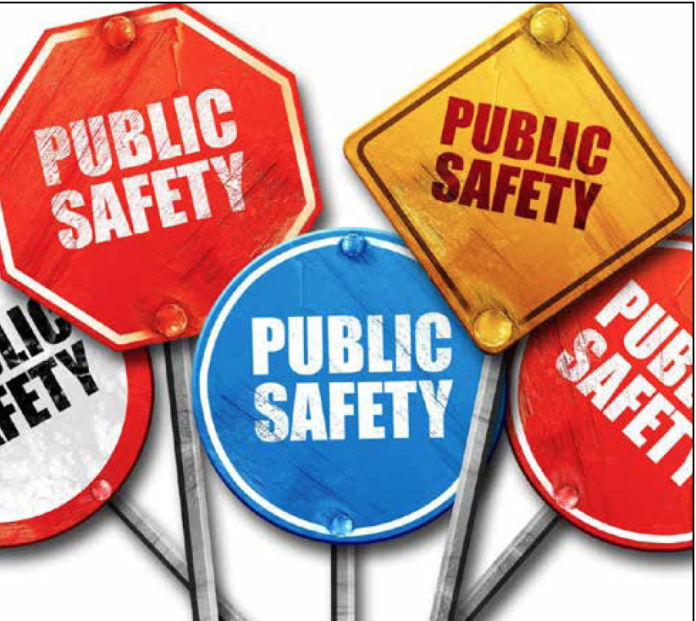Commissioner William Gross startled the large crowd gathered for the recent community-wide meeting on public safety noting that 3,757 moving violations and citations were handed out by Boston, State and MBTA police over a 60-day period in South Boston. Folks in the auditorium shouted, “keep it up” and “don’t stop”. His department instituted ‘operation crosswalk’, using police cadets as pedestrians crossing the street and then pulling over drivers who didn’t stop to let them cross. The commissioner and his C-6 Captain Joseph Boyle pledge to continue traffic enforcement in a long-term effort to change the behavior of both drivers and pedestrians.
South Boston resident, Clerk Michael Donovan, serve as the master of ceremonies and after reciting the Pledge of Allegiance, introduced Mayor Marty Walsh. Walsh apologized for missing the previous public meeting. He then recited the many ways, through both permanent and ‘pilot’ initiatives, that the City has and would be trying to address the traffic and public safety issues caused by a burgeoning downtown Boston, which has a unique affect on South Boston because of its proximity and the amenities it offers in general. These include: larger stop and slow signs, raised intersections, flex posts in the median, new line configurations adjusting traffic flow, targeting hot spots like L and 6th Streets and Farragut Road among others, monitoring shared vehicle services more closely and addressing the use of cell phones through pending ‘hands-free’ legislation. Walsh emphasized the need for shifts or changes in human behavior, as being a key part of any government attempt at technical solutions.
The Department of Transportation (DOT) representative, Andy Paul, pointed to the re-opening of the Haul Road and tracking its effect on traffic flow and volume reduction. He stated that the Department has ongoing data collection being conducted relative to the effects of the so-called road diet, including speed humps, as well as volume counts. A task force is working on a pedestrian plan and the evaluating and tracking of the impact of all modes of transportation into, through and out of the South Boston neighborhood.
Elected officials weighed in with Congressman Stephen Lynch, asking for patience, as the pilot programs play themselves out. He commented that Day Boulevard and L Street seem to be under control but traffic that diverts itself to M and K Streets can’t be left off the hook. Referencing New York City, there is some merit towards testing raised intersection, such as at L and Broadway. With winter looming, however, it poses a challenge to snow plows. A lot must be taken into consideration, was the upshot.
Senator Nick Collins pressed the DOT to spend the available funds that had been allocated to finalize as many solutions as possible in South Boston Proper. Collins applauded the reduction is the speed limit and wants to see it get down to 20mph at the Bathhouse and on L Street. He also referred to legislation pending on the issues of issuing tickets by video surveillance, the hands-free driving that the Mayor alluded to, which passed the Senate but not the House. He expects that it will be taken up again in January. Ticketing by video surveillance is opposed to by the ACLU. Democratic nominee for State Representative David Biele pledged to work with Senator Collins on these legislation initiatives.
Councilor Mike Flaherty support a South Boston only exit off of I-93, a sustain enforcement presence, 4-way stop signs at key intersections and more traffic lights. Councilor Ed Flynn along with Councilor Frank Baker are pushing the 20mph speed limit reduction at the City Council.
Local residents had an opportunity to speak. William Touchie McDonough, always passionate, pressed for siting parking garage wherever possible and suggested that in addition to M and K Streets, one-way traffic on G, H and Old Harbor Streets invites excessive speed as outsiders try to circumnavigate the community to get to the highway. Mary Cooney suggested lines be designed and painted so as to manage the traffic better along Summer Street between Broadway and the Bridge. Corey Dinopoulos offered suggestions for safer and better bike lane infrastructure. Clerk Donovan pointed out that bike riders must obey the laws in tandem with motor vehicles, since they share the same space.
The use of social media has revolutionized communication and residents are leveraging it to draw attention to the problems that inconsiderate and selfish drivers bring with them on their commute. Deirdre Habershaw, who lost her dad, Bill McDermott, after being hit by a car at the Curley Recreation Center intersection, called for a re-education of the public and increased attention to understanding the “Rules of the Road”. This was reinforced by comments of Katy Donovan, herself a car accident victim, who pressed the police on enforcement of the rules.
Signage, speed traps, radar guns, stepped up enforcement with suitable fines – residents want the community, law enforcement and the government collectively ever-vigilant and pro-active in addressing the issues raised. Mayor Walsh reminded everyone that it is a citywide challenge, but South Boston will be getting the attention it needs.










